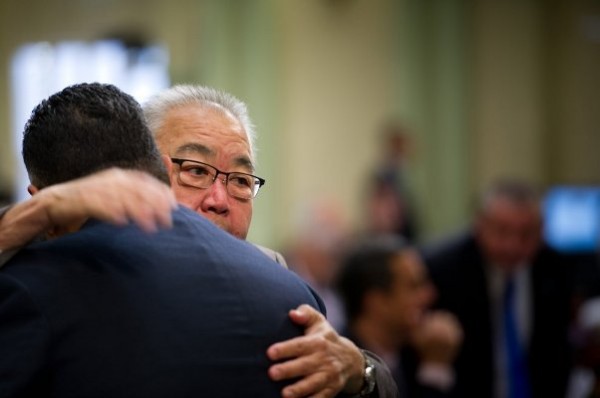California Public Pension Reform Approved By Legislature


Gov. Jerry Brown is expected to sign AB 340, a bill enacting landmark California public pension reform. In a rare show of bipartisan cooperation, the bill passed overwhelmingly on Friday with major support from both parties. The Senate vote was 38-1 and the Assembly cleared it by 66-9. Some conservatives felt the bill did not go far enough while public unions opposed it. The huge margin of victory for AB 340 indicates the legislature listened then acted on the growing mandate for public pension reform coming from the citizens of California.
AB 340 includes three-quarters of California cities, those that operate under general law. Cities with their own charter are not included. Among them are California's biggest cities: Los Angeles, San Jose, San Diego, and Oakland. However, voters in San Jose and San Diego recently voted for pension reform while Los Angeles and Oakland are considering such measures.
The pension reform bill limits collective bargaining for pension benefits and the need for municipalities to negotiate with public unions. In addition to a probable reduction in benefits and increased payments by union members, this reduction in the ability to negotiate directly with municipalities on pensions is a primary reason why unions oppose the bill. Others say the bill is does not go far enough and will not make an appreciable difference for years since many of the cost savings are based on new hires. Savings in 2013 will be just $146 million. CalPERS estimates the savings over thirty years will be between $42 billion and $55 billion.
Here is some of what AB 340 mandates:
- 50-50 split of normal pension costs between employer and employee. If unions do not agree when current contracts expire, cities can mandate it starting in 2018.
- Reduced pensions and higher retirement ages instituted for new hires starting Jan 1, 2013.
- No retroactive pension increases or pension spiking (using special compensation, overtime, and sick leave to increase pension amounts.)
- A cap on high-end pensions.
- 180 day waiting period for those who retired before going back for work under the same pension system.
- No airtime. CalPERS and CalSTRS members are barred from increasing their pensions by buying additional years of credit.
- Eliminates pension holidays. Public pension funds may not skip making contributions to the fund when it is doing better than expected.
California public pension reform has finally started, and it took a bipartisan consensus in a normally contentious legislature for it to happen, something that perhaps bodes well for the future of California.


